| Written by Paul D. Race for Family Christmas OnlineTM |

|
Thanksgiving, Then, and Then, and Now, from Family Christmas OnlineTMWhen most Americans think about Thanksgiving today, they tend to think about football, turkey, "pilgrims," "Indian corn," and Native Americans, more or less in that order. But Thanksgiving is bigger than all that, and much older, too.Let's start with the parts of the story that seem to go together: turkeys, "pilgrims," corn, and Native Americans. Most Americans remember that in November, 1620, 102 would-be colonists started Plymouth colony on Cape Cod. About half of the settlers were Puritans, Protestants hoping to establish a place where they could practice their religion in peace. Unfortunately, disease and other hardships ravaged the new colony until they had lost half their number.
According to some sources, a similar feast followed in 1623, after the colony survived a drought. This time the Wampanoag were apparently invited on purpose. But there was no tradition of annual Thanksgiving feasts until the mid-1800s.
Four years later, Longfellow told the story of an unconventional courtship in early Plymouth. Based largely on myth, educated guesses, and wishful thinking, "The Courtship of Miles Standish,"*** nevertheless made the first year's settlers "come alive" in people's imagination. By the middle of the Civil war, renewed interest in Plymouth history and the myths that inevitably grew up around it gave Northerners an added benefit - they could celebrate the history of America without mentioning Virginia, the first and most prosperous colony, but now their enemy. Before 1854, hardly anybody cared whether or not their ancestors had come over on the Mayflower. By the end of the Civil War, New England held as many Mayflower descendants as Europe held relics of the "True Cross." According to some accounts, this renewed interest in Plymouth history led various communities to start holding harvest festivals or "Thanksgiving feasts." In 1863, Abraham Lincoln established the last Thursday of November as a national day of thanksgiving and prayer.**** At some point the Mayflower Compact survivors, also came - somewhat inaccurately - to be called "pilgrims."***** By the late 1800s, many Americans thought of Thanksgiving feasts as inextricably linked to "pilgrims," Native Americans, pumpkins, and turkeys. (Cranberries and football came later, in case you wondered.) But Thanksgiving feasts have been occurring since the dawn of history. In fact, the ancient Hebrews celebrated not one, but three feasts tied to various harvests. The Feast of Unleavened Bread (Pesach) coincided with the barley harvest. The Festival of Weeks (Shavuot) celebrated the wheat harvest. And the Festival of Booths (Sukkot) coincided with the beginning of the fruit harvest. At each of these festivals, grain offerings, prayer, and huge gatherings occurred, and prayers of thanksgiving were offered. Many practices during these festivals recall Israel's agrarian past, from building shelters made of tree branches, to incorporating sheaves of grain in worship services. During Sukkot today, one palm branch, two willow branches, and three myrtle branches are bound together. The celebrant then holds a citrus fruit in one hand, while with the other he waves the branches north, south, east, west, up, and down, to symbolize that God is everywhere. Think about that the next time you bind corn stocks or "Indian corn" for decoration, or pile a table with decorative fruit. Even Longfellow's unconventional romance between John Alden and Priscilla Mullins has a parallel in Jewish feasts. Every year during Shavuot, practicing Jews read about the unconventional romance of King David's grandmother Ruth. But of course harvest festivals are as old as harvests, and using such occasions to thank God for His bounty is as old as history. Today's culture seems to love the pumpkins, turkey, and similar trappings, but forget the "thanksgiving" part of the festival. Many attempt to discredit the intentions of those early Plymouth survivors or to downplay the importance of their faith. It's appropriate, however, to remember a devout remnant who had come through great hardship and were still on good terms with their neighbors and thankful to God. Better yet, make every day a day of Thanksgiving to our Father from whom every good gift comes. God grant you and your loved ones grace and a spirit of generosity and service this season. Paul D. Race, Family Christmas Online If you have any corrections, comments, or additions you would like to make about this article, please contact me and I will be glad to hear from you. God bless - Paul 2013 UpdateSince I wrote the above article, several people have told me that European-Americans should not celebrate Thanksgiving but be ashamed of it, because Thanksgiving is not really about thanking God for a good harvest but about killing Native Americans. One of the "evidences" for this is a sloppy hoax that was added to a school lesson plan about Thanksgiving about 1986 and which has been circulated in academic circles ever since. Ironically, it was disproven almost immediately, but it stays in the curricula because it "supports an important point." The story of that hoax and some of the supplemental hoaxes, misrepresentations and plagiarisms that it spawned are recorded here.Other deliberate misinformation about Thanksgiving includes claims that the 1621 feast never happened at all and that the Thanksgiving tradition really started after a Puritan mob murdered an entire Pequot settlement in 1637. True, the Puritan's massacre of the Pequot was much more typical of the way the Puritans treated the Native Americans, but I'm not sure that means we're morally obligated to ignore the one relatively "bright spot" in an otherwise brutal and unforgivable history. Nor am I impressed by European-American writers and bloggers who never do anything tangible for Native American causes, but come out of the woodwork once a year to try to make other European-Americans feel bad about Thanksgiving. I can't help feeling that, for them, bashing Thanksgiving is a seasonal entertainment like carving pumpkins or watching football games. How does this help anybody? And why Thanksgiving? If you were really worried about Native American causes, you'd do something more effective and ongoing than vilifying the Mayflower Compact survivors once a year. Maybe it's just that the idea of having a national holiday that has even a residual religious connotation is hateful to you. In that case, the "Pilgrims" aren't really the problem at all, are they? Speaking of the Mayflower Compact survivors, we have every reason to believe that when they boarded the Mayflower, they were every bit as legalistic and intolerant as the Puritans they left behind (the ones who shut down theaters, murdered the king, and put one of their own in his place) or the ones who joined them later and started killing Native Americans wholesale by 1637. But I suspect that the initial settlers' experience changed at least some of them. There are parallels in history, you know. For example, the first wave of crusaders, after an unforgivably murderous start, realized that they had "bitten off more than they could chew," settled down, and made peace with the surrounding Muslim kingdoms. Eventually they made friends among Muslims of rank, and - amazingly - were accepted as equals. The little colony they started might have survived except for subsequent waves of crusaders who couldn't believe that their predecessors had made friends with "heathens" and started so many random wars against so many Muslim kingdoms that they finally accomplished what Mohammed never had - a sense of Muslim unity that could cross all other cultural boundaries when confronted with a common outside threat. Sorry, I'm off track, but the point was that a stable European foothold in a foreign land was endangered by later arrivals who did not understand (or want to understand) why their predecessors had made peace with people who weren't like them. A more recent case might be the "Christmas Truce," a day in WWI's brutal trench war when the Allies and Germans reputedly took time off from killing each other to collect their dead and celebrate Christmas together, then ostensibly started killing each other again on the next day. This story is used by many to illustrate the ironies of war, but it shows more than that. After that Christmas day, neither side really took an interest in killing the other side. The connection that the troops had made didn't go away just because their commanders ordered them to start shooting each other again. According to some historians, the trench war didn't begin again in earnest until the British, French, American, and German armies had all rotated out the troops who had been "contaminated" by getting to know their "enemies." Once those troops were replaced with new troops that hadn't experienced the truce, the trench war picked up again in earnest, to the relief of commanders on both sides. I may be reading too much into this, but I can't help hoping that the Mayflower Compact survivors who belatedly invited the Wampanoag warriers to join the "First Thanksgiving" (1621) and who - according to some accounts - invited them on purpose to another feast in 1623 began to see the natives as people, too. If such as thing occurred, we'll never know, because later arrivals who didn't share the first settlers' experiences soon outnumbered them, and the colony reverted to the Puritans' default savage intolerance. Why does it matter to me if the first settlers' experience changed them? Because I'd like to know that, in spite of recent cases of "ethnic cleansing" overseas and this country's rising tide of personal arsenals, extremist media scares, and arrogant intolerance toward the poor and minorities, people who are unlike each other on the surface can still get together and learn than they have more in common than they thought. I also have to give credit to the Native American writers who point out - quite correctly - that the "pilgrims" did not invent the concept of thanking their Divinity for a good harvest. Like the ancient Hebrews and all peoples who have ever depended on agriculture, the Native Americans had been having harvest feasts and festivals for millennia. Maybe Thanksgiving will be easier for you if you forget about the people with funny hats and largely disturbing history. Think instead of how you can show gratitude for the good things in your life and tear down barriers between you and folks who aren't just like you. When you feel the crisp autumn air, hear the rustle of fallen leaves, see the newly cleared fields, and taste the fruits of the season, think of all the generations who lay the foundation for the life you live. And remember the Lord of the Harvest, as well as His other children. - Paul Race, 2013 *The earliest recorded account of this feast is Edward Winslow's account, written in December, 1621, and published in 1622 as part of Mount's Relation: A Journal of the Pilgrims at Plymouth. To read Winslow's account, click here. **The next record was in a memoir written about twenty years later: William Bradford's Of Plymouth Plantation. This document was rediscovered in Britain in 1854 and stirred much interest in Plymouth's early history, including the harvest festival that became known as Thanksgiving. To read Bradford's account, click here.
**** To learn more about Lincoln's proclamation, click here. *****Folks may have started using that term because they wanted to maintain the illusion that the Puritans who boarded the Mayflower were somehow a better class of people than the Puritans who stayed in England and later murdered the king and put one of their own in his place. Personally, I doubt that they were any better when they started out - just braver. However, I would not be surprised to learn that the would-be colonists who survived the first year with help from people who were way outside their little religious circle were a better class of people than they were when they got on the boat. Unfortunately, we'll never know for sure, because other Puritan arrivals, untempered by the experience of the first group, soon outnumbered the survivors and reset the culture of the colony to one of ubiquitous legalism and intolerance.
|
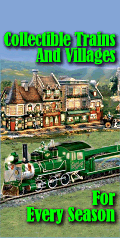
|
To return to the Christmas Musings page, click here.
To return to the Family Christmas OnlineTM Home Page, click here.
Note: Family Christmas OnlineTM is a trademark of Breakthrough Communications(tm) (www.btcomm.com). All information, data, text, and illustrations on this web site are
Copyright (c) 2006, 2007, 2008, 2009, 2010, 2011, 2012, 2013 by Paul D. Race.
Reuse or republication without prior written permission is specifically
forbidden.
Family Christmas Online(tm) is a participant in the Amazon Services LLC Associates Program, an affiliate advertising program designed to provide a means for sites to earn advertising fees by advertising and linking to amazon.com.
For more information, please contact us
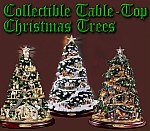
| 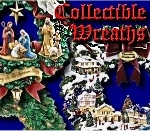
| 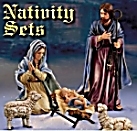
| 
| 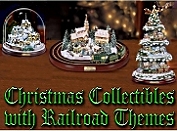
|